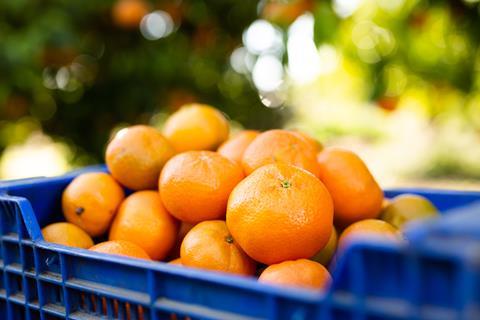The CGA has again approached the South African government ahead of a ”looming EU FCM regulation crisis that threatens orange exports and grower livelihoods”
The South African citrus industry is continuing its letter writing campaign to the government as it looks to stave off the effects of new EU regulations on the country’s orange export sector before the start of the new season.

However, it appears that the regular stream of letters delivered over the last few months have had little effect.
Now, on the eve of the 2023 orange citrus season, the Citrus Growers’ Association of Southern Africa (CGA) has written to the minister of trade, industry and competition, Ebrahim Patel, and minister of agriculture, Thoko Didiza, requesting an urgent update over the government’s interventions to help resolve the current impasse between South Africa and the European Union.
This concerns the new false codling moth (FCM) regime governing the importation of South Africa oranges to the region.
“Despite months of consultations between both parties at a World Trade Organisation (WTO) level, it appears very limited progress has been achieved to avert the crisis that will face the industry should growers have to implement these new regulations when oranges start being shipped to European markets in less than two weeks’ time,” said Justin Chadwick, CGA chief executive.
The CGA said the crisis included an estimated R500m in losses to growers and around 20 per cent of oranges produced for Europe not being shipped this season.
“With the industry facing a number of serious headwinds over the past two years, including soaring farm input and shipping costs; power outages and operational issues at ports, the 2023 season will be a make or break one for many growers,” Chadwick explained.
“As a result, these new regulations, if implemented when the season kicks off, could be the final nail in the coffin for many of them as well as the thousands of jobs they support.”
The association has written several similar letters over the past few months, even calling on the South African president to intervene, with seemingly little success.
The CGA said it was grateful for the support shown by the national government to date, but to safeguard the future sustainability of the industry, as well as the 130,000 jobs it supported, urgent action was required before the end of this month to avert the impending crisis facing the sector.
“This should include taking the next step, which is calling for the establishment of a WTO Panel to adjudicate on the matter,” said Chadwick.
The ”unjustified, discriminatory, and scientifically flawed new regulations” were nothing more than a political move by Spanish producers to block South African citrus from entering the EU region, the CGA outlined.
“It is critical that the South African government draws a line in the sand within the next two weeks, so we put a stop to this looming crisis threatening the number one agricultural exporter in our country,” Chadwick added. ”The CGA remains committed to continue working with our government on this critical matter to ensure the short-term and long-term survival of our industry.”



